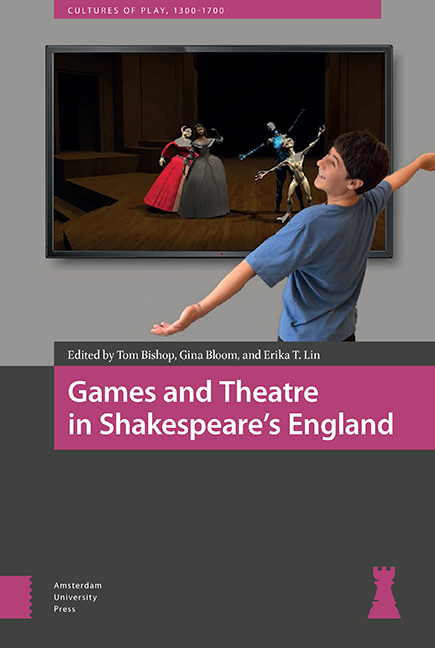3 - The Roll of the Dice and the Whims of Fate in Sixteenth-Century Morality Drama
Published online by Cambridge University Press: 21 October 2021
Summary
Abstract
Young characters play dice games in the early Tudor morality plays Nice Wanton (c. 1547–1553), Impatient Poverty (c. 1554–1558), and Misogonus (c. 1564–1577). These staged games are best understood in the context of the mid-sixteenth century's theological upheavals, particularly in response to Calvinism, and the concurrent rise of an increasingly capitalist economy that rewarded economic risk-taking, a behavior that is mirrored in gambling. In looking at the role (and roll) of dice in these three plays, this essay traces the way staged dice play contributes to increasingly complex debates on the religious and economic implications of risk-taking.
Keywords: Calvinism; history of capitalism; Tudor drama; dice; early modern religion; history of gambling
When Youth, the protagonist of the early sixteenth-century morality play The Interlude of Youth (c. 1515–1520), meets up with the bad influence that is Riot, Riot promises to teach him “to play at the dice […] and many other games mo” (lines 671, 674). Playing games of chance—cards and particularly dice—is set up as a sign of sin, and a particularly dangerous sin for wealthy young men like Youth who may be tempted to gamble away their money rather than giving it to the poor, as was encouraged by Catholic doctrine. Almost a hundred years later, Shakespeare's Antony and Cleopatra is shot through with the language of games and gambling, including two uses of the word “hazard,” the name of one of the era's most popular dice games. Enobarbus warns Antony of the risks he takes in choosing to engage in battle at sea, which would make Antony vulnerable “to chance and hazard from firm security” (3.7.47–48). When he loses, Enobarbus chastises him for having “nicked his captainship”—a nick is a winning throw of the dice in the game Hazard (3.13.8), and the word is used in this way in the mid-sixteenth-century morality play Nice Wanton, too, when one character playing the game asks “do ye nick us?” Warning Antony that he is destined to fall to Caesar, the Soothsayer says, “if thou dost play with him at any game/ Thou are sure to lose” (2.3.23–24); Antony's frustrated response admits that, indeed, “the very dice obey him [Caesar]” (2.3.31).
- Type
- Chapter
- Information
- Games and Theatre in Shakespeare's England , pp. 89 - 114Publisher: Amsterdam University PressPrint publication year: 2021



